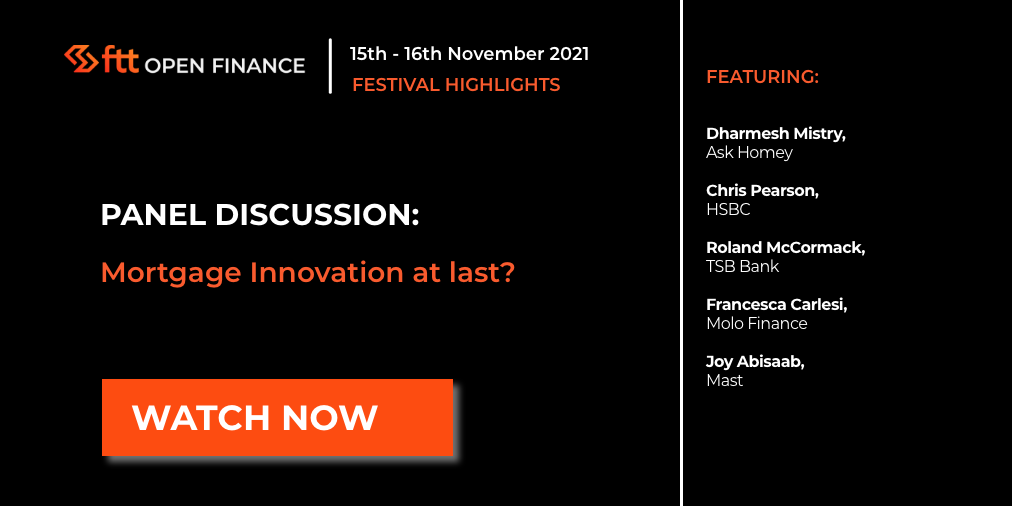
Open banking has had a huge impact on many areas of lending in the recent years. Faster and better informed decisions, a wider variety of products and greater customer approval are some of the benefits that open banking has achieved. But, as we sat down on the FTT Open Finance stage at the Fintech Talents Festival last month, the panel considered whether open banking really had been a game changer in the mortgage space so far.
Our moderator, Dharmesh Mistry from Ask Homey, opened the conversation by asking whether open finance really had helped the mortgage sector. Chris Pearson of HSBC commented that specific technologies will only come to the forefront if customers are open to adopting it. This is not happening as much as we may like to see and there is still a long way to go until open banking can fully innovate the mortgage process.
Another thing we must consider when analysing the impact of open banking, is its effect on different groups within society. It may have had a greater effect on someone who is unemployed or has a low credit score, but may not have had a significant impact on someone who is employed and considered as a traditionally attractive borrower.
Francesca Carlesi of Molo Finance put a positive spin on the conversation, asserting another side to the argument – if there’s one use case in which open banking should be used, then it is within mortgages. The mortgage space is unique in that it is one of the only areas in life where individuals accept that sharing more personal information is crucial and of real benefit for them.
Perhaps it’s unfair to say that there is no innovation in mortgages – Roland McCormack of TSB Bank points out that customers are already receiving on-demand service and often a decision in as short a time as 15-minutes. There has been a lot of focus on the decision-making process, but perhaps now it’s time to speed up the post-offer, conveyancing process.
In order to truly see the benefits of open banking, financial institutions need to build more flexible infrastructures, which can often be done quickly through partnering with fintechs. Joy Abisaab of Mast points out that flexibility is crucial to innovate the mortgage space.
Although slightly controversial, we can certainly say that the mortgage space is transforming to reflect a change in customer expectations. The panel also covered some of the key technologies which will be important in future innovation, such as blockchain and AI, as well as suggesting that a rebranding of “open” banking could push the mortgage space further into the 21st Century.
The conversation around mortgage innovation will be continued at FTT Lending 3.0 on 30th March, London.
The Panel:
Dharmesh Mistry, CEO, Ask Homey
Joy Abisaab, Co-Founder & CEO, Mast
Chris Pearson, Head of Intermediary Mortgages, Wealth and Personal Banking, HSBC
Roland McCormack, Mortgage Distribution Director, TSB Bank
Francesca Carlesi, Co-Founder & CEO, Molo Finance











